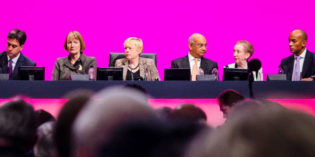Labour party

Book Review | Peter Shore: Labour’s Forgotten Patriot by Kevin Hickson, Jasper Miles and Harry Taylor
In Peter Shore: Labour’s Forgotten Patriot, Kevin Hickson, Jasper Miles and Harry Taylor looks back at the ‘lost Eurosceptic tradition’ within the Labour Party’s history by examining the life of the largely neglected front-rank politician, Peter Shore. This skillfully crafted and revealing biography not only reappraises Shore’s career, but uses this as a lens to examine salient issues in the historical development of the Labour Party, writes Patrick Diamond.

Labour Party leadership: can Keir Starmer really maintain party unity?
Keir Starmer convincingly won the leadership of the Labour Party, gaining strong support in the parliamentary Labour Party, unions and the membership. However, as the controversy over a leaked report into internal party disciplinary procedures shows, unity is not a given. Max Kiefel compares the challenges Starmer faces to the circumstances of his two predecessors as party leader, and argues that it is not enough to create party unity, he must also lead the party to respond effectively to the Covid-19 crisis.

The forward march of party members: has the shift in power to the grassroots gone too far?
Patrick Seyd writes that while parliamentarians are in a much better position to decide who should lead the party than party members, in recent years the balance has shifted in favour of the latter. This plebiscitary politics negatively affects both the quality of political leadership and of decision-making.

Same difference? Female (and male) members of Britain’s political parties
A recent report by the Party Membership Project run by Monica Poletti, Tim Bale and Paul Webb has shown how the membership of Britain’s main political parties is more like to be male, middle aged and middle class. The results of this survey were explored in a discussion with several leading female MPs, which highlighted common concerns about party behaviours, class and gender barriers that reinforce these disparities in participation.

Many Labour MPs have still to unequivocally reject ‘roll-out’ neoliberalism
Chuka Umunna recently defended the last Labour government against a left-wing critique that its modus operandi was fundamentally neoliberal. Ewan Gibbs and Sean Kippin argue this does not consider the nature of neoliberalism, particularly the distinction between its ‘roll-back’ and ‘roll-out’ variants. They argue that New Labour’s approach was indeed of the latter type.

Corbyn’s rent controls: radical new housing policy, or just rhetoric?
If there is one thing that Labour and Conservatives currently have in common, it is that both appear ready to embark on a step change in housing policy. But are Jeremy Corbyn’s recent announcements on rent controls a sign of change, or just another new political language for ‘masterly inactivity’? Ben Pattison (Sheffield Hallam University) reviews Labour’s […]

What’s driving the decline of the centre-left?
Are centre-left parties across Europe facing terminal decline? Drawing on a new book, Rob Manwaring (Flinders University) and Paul Kennedy (University of Bath) argue that an essential element in any robust democracy is an effective centre-left. However, centre-left parties now face a number of major challenges, from the rise of new parties, to the erosion of their traditional support […]

Book review | Guilty Men – the Brexit Edition, by Tim Oliver
Brexit is as big and dangerous a mistake as that of appeasement in the 1930s. So argues Cato the Younger in his book Guilty Men: Brexit Edition, reviewed here by Tim Oliver. Taking up the pen of his great grandfather, whose 1940 book of the same name destroyed the reputations of those responsible for appeasement, Cato the Younger is no […]




 Democratic Audit's core funding is provided by the Joseph Rowntree Charitable Trust. Additional funding is provided by the London School of Economics.
Democratic Audit's core funding is provided by the Joseph Rowntree Charitable Trust. Additional funding is provided by the London School of Economics.